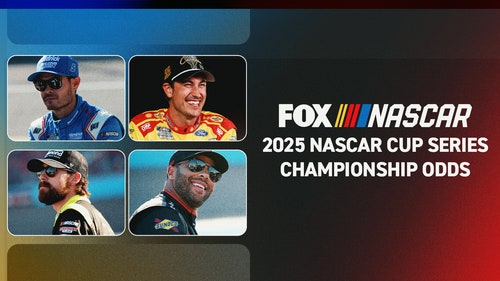
NASCAR sends message with 'secret' fines to Hamlin and Newman
NASCAR has been proactive in holding town hall meetings with drivers and owners to gather an exchange of ideas to bolster the sport. Nevertheless, competitors have learned over the last few months that expressing their opinions in public can come with a price.
Just ask Ryan Newman or Denny Hamlin. Both drivers were reprimanded and fined for vocalizing negative sentiments in regards to NASCAR this week, but the penalties were delivered privately without the sanctioning body providing a press release.
Why the clandestine tactic?
“I asked what was the point of fining me if you’re not going to tell anyone?” Hamlin said. “They said, ‘Hopefully, it will keep anyone from bad mouthing us.’”
Now, NASCAR Nation knows. And while the drivers declined to divulge the amount of the fines, Hamlin joked, “There’s been illegal parts in the garage that have not gotten hit as bad as I did.”
Dale Inman, who was Richard Petty’s crew chief for his record seven NASCAR Cup titles, doesn’t remember the sanctioning body retaliating against drivers with fines. Over the years there have been teams that find it difficult to get through inspection, have their practice time cut, are levied with pit road speeding penalties or cautions at inopportune times but never sizable penalties.
“I don’t remember fines like this,” Inman said. “Maybe you’d just be in Billy (France) Jr.’s doghouse. But I don’t remember that much criticism about racing. We run some races that were — I don’t want to say unsafe — but under conditions that were unfavorable to run. If they said we were going to run, we just run.”
During Petty’s heyday, he never worried about what he said to the media. There just wasn’t the throng of reporters covering the sport and television was in its infancy. Petty said the dozen or so reporters that followed the tour were “very reluctant to say anything that was detrimental to NASCAR because they wanted to keep their jobs.” The goal was to increase the popularity of the sport so “their editors would continue to send them to the races.” And NASCAR didn’t intervene.
But since then, the landscape has changed. Now, Newman said he doesn’t believe the boundaries are clear as to what competitors can say to the media without worry of repercussion.
“I don’t think that you necessarily ask us those questions that won’t get us in trouble,” Newman said. “As media, it’s your job to try to stimulate some of that stuff. We need to stimulate the positive things, not the negative things, and that ‘s part of what NASCAR’s trying to say.”
Hamlin has hopes of being the voice of the NASCAR garage, similar to Petty and Dale Earnhardt in the past. With his performance over the last year, he feels he’s earned that right. But Hamlin has also learned in his desire to become more vocal — including Twitter posts — that what becomes public can remain public. A recent exchange Hamlin had with a fan ignited NASCAR’s ire.
So what’s the line competitors can’t cross?
“I think questioning the integrity is off limits,” Hamlin said. “Saying races are fixed, saying that they’re throwing phantom cautions for no reason except for show sake, those are the things we don’t need in our sport. It’s not saying, ‘Hey, I don’t think the new Chase format is what we need,’ that’s not it. It’s more the direct questioning of officiating.”
Still, there’s a contradiction of messages here. In a time when NASCAR definitely needs to find characters who move the needle — drivers with compelling personalities that win on a regular basis — the sanctioning body’s attempt to stifle disparaging remarks could strip the sparkle from the stars altogether.
That’s not going to change for Newman.
“I won’t stop being me,” Newman said. “It’s way too much fun.”







